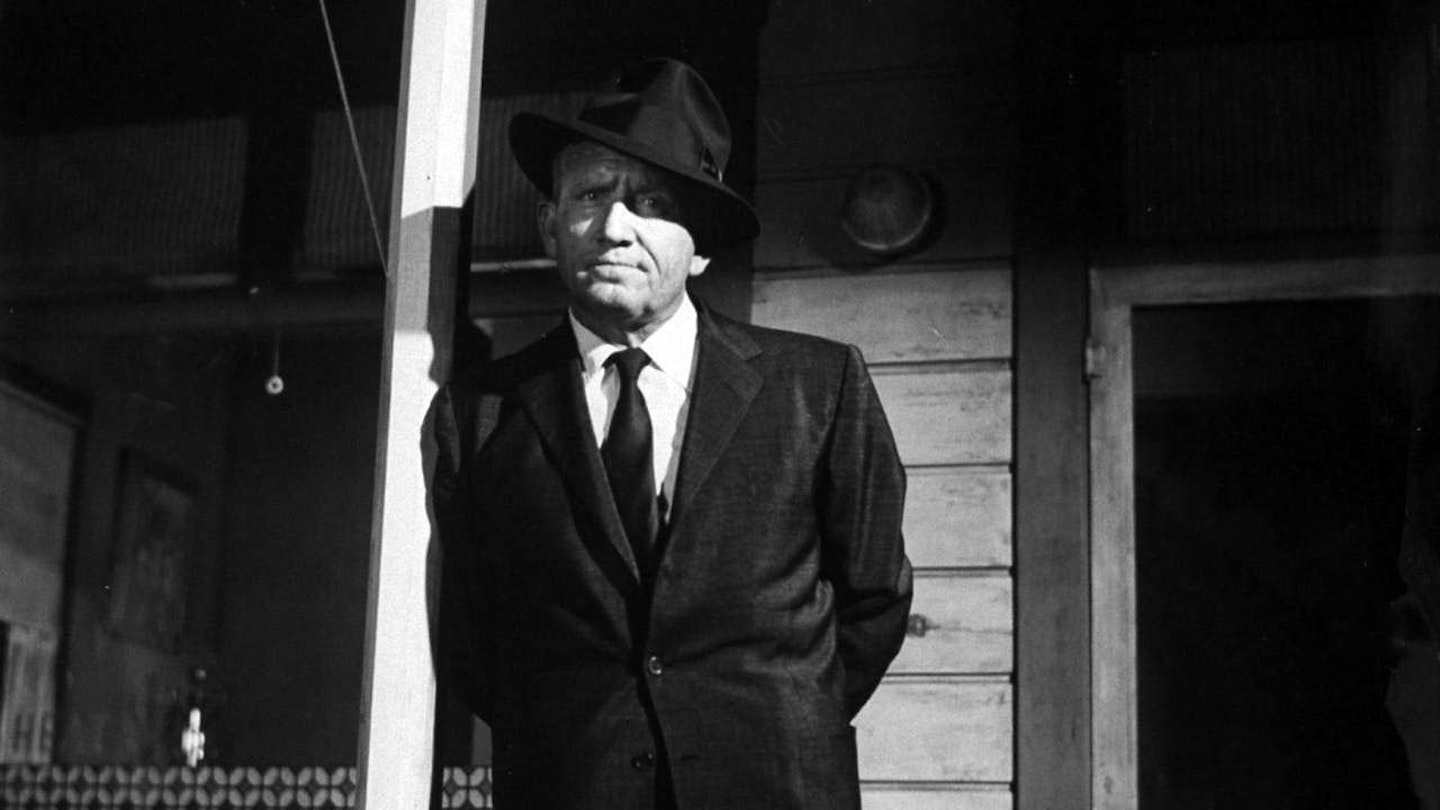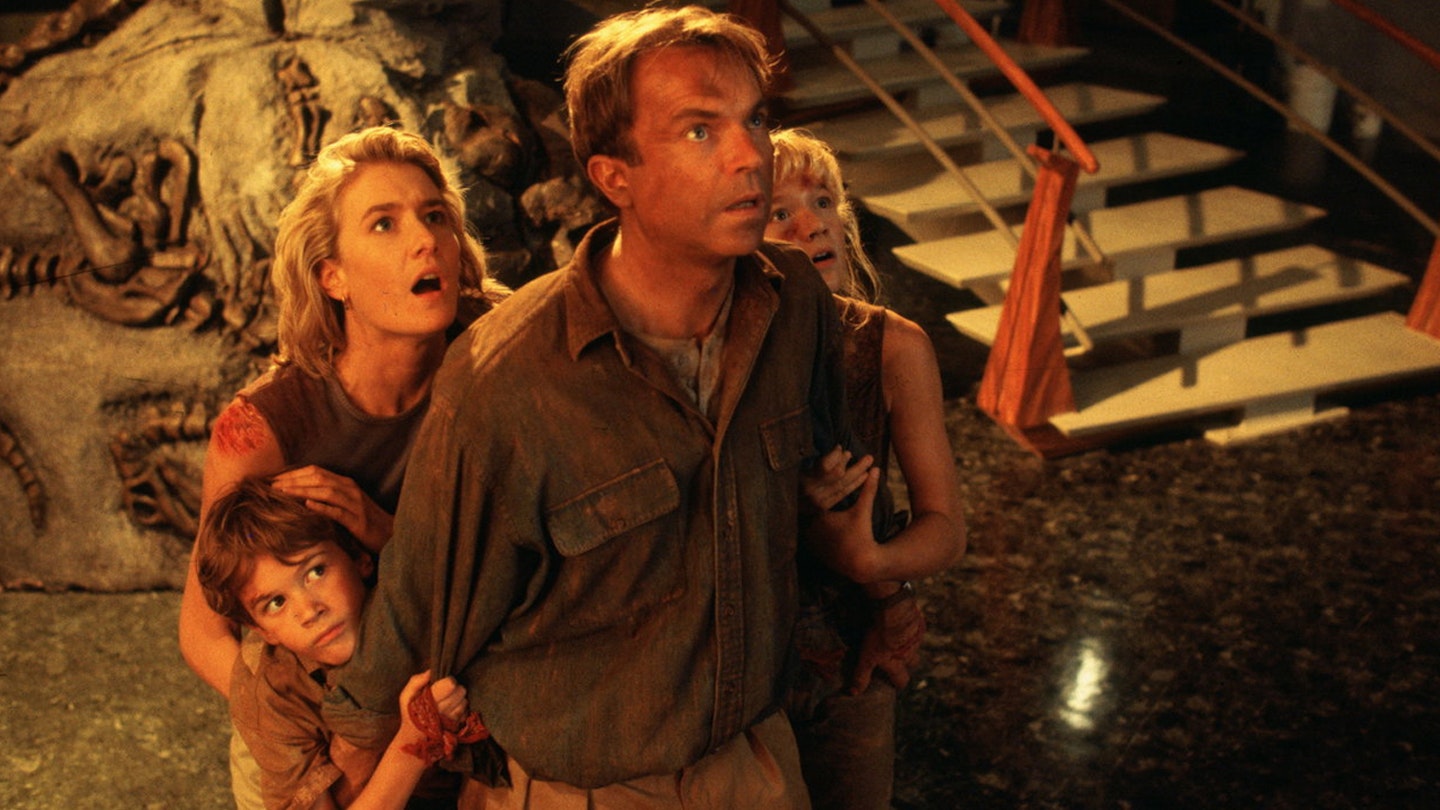A hugely influential widescreen Western, with a High Noon-like plot that plays out over one crowded day in the middle of nowhere, mixing straight-up suspense mechanics with editorialising about the gutlessness of all-American communities. It was one of the first movies to look at the modern-day West, with jeeps bouncing along the old horse trails and a sense that the frontier values have dribbled away in economically depressed times and in any case concealed fairly unpalatable attitudes to outsiders.
Stiff‑armed, city-suited Spencer Tracy, stolidly middle‑aged and unthreatening, wanders about the small town, provoking hostile reactions from all and sundry as he probes into the local guilty secret. Robert Ryan, always a complicated villain, is the neurotic cattle baron who did the dirty deed everyone is trying to cover up, while Lee Marvin and Ernest Borgnine are memorably fiendish as the cowboy thugs who keep getting in Tracy’s way.
Dean Jagger’s drunken weakling Sheriff and Walter Brennan’s grumbling cynic town doctor want to do the right thing, but still won’t stick their necks out to help the stranger. Anne Francis is slightly improbable as a glamourpuss in blue jeans, though she plays a less-stereotyped role in the procedings than expected.
In the American cinema's first major martial arts sequence, Borgnine pours too much ketchup into Tracy's chili and the crippled hero lays him out with swift judo moves. The Important Social Message (about wartime racial prejudice against Japanese-Americans) pops up late in the day but doesn't spoil the simmering suspense, and John Sturges does his best‑ever job of direction as the slow‑burning plot explodes into CinemaScope action.

